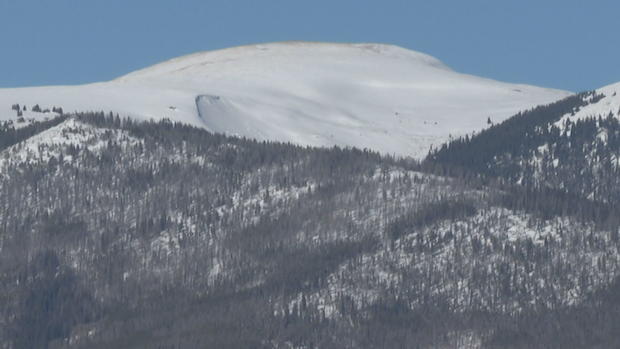'Make Or Break' Time For Colorado Snowpack: Why The Next 2 Months Are Critical For Colorado Water In 2022
SUMMIT COUNTY, Colo. (CBS4) - It's been a strange year for snowstorms in Colorado, but strange weather is the norm here. Climatologists have logged massive snowfall in December, but then see the "faucet turn off" and Colorado go dry for almost a month.
Now is the time to get the levels we need to at least hold the average, or better yet, make up for lost ground from last year's lackluster snowpack.
"The mountains should be getting like a quarter to a half inch of moisture every single week (of March and April)," Becky Bolinger, Assistant State Climatologist with the Colorado Climate Center at CSU said.
"So if they don't get that, it's easy for them to quickly fall behind, but there are still lots of opportunities to make up."
Bolinger explained that Colorado typically goes in "steps" of snowpacking. The state will not see snow for a while, then a bunch will dump all at once. She said that's fine, so long as we pile enough in the high country to last well into May and even June in some years.
"Our entire state relies on water that starts at the highest elevations," Bolinger said. "It's good that we are all keenly aware to what's going on because we know where our water comes from. It does start as a snowflake and so, every snowflake up there is it's incredibly important."
Just within the past couple of years, the slow to build Dillion reservoir levels have shown a slight drop. While this doesn't account for several variables, it can be attributed to at least in part, our snowpack in the high country, or lack there of. All data here is attributed to Denver Water.
90% full on 2/28/2020
80% full on 2/28/2021
78% full on 2/28/2022
Overall, the outlook that was worrying Bolinger is now "looking okay," but she said there's still a lot of work to be done in terms of snowfall.
"We do have some extra deficits to make up from last year," Bolinger said. "In order to get our reservoirs in our state back to a normal place, we need above average peak snowpack."
Another hurdle on the horizon comes from long range forecasting from the Climate Prediction Center, showing trends towards a drier and warmer than average spring. While long range forecasting is not a perfect science, early data is enough to concern Bolinger about the chances Colorado sees massive snowfall.
Hopefully, this article jinxes everything and we see it start dumping soon.




